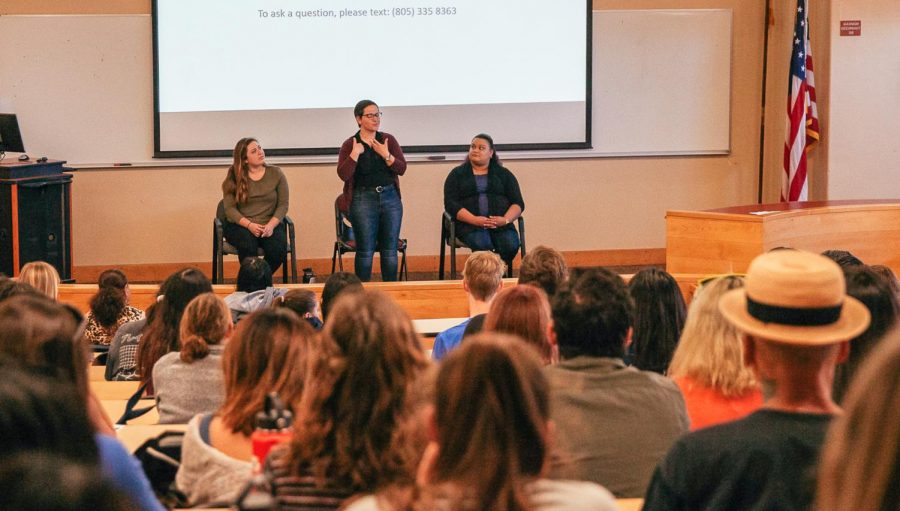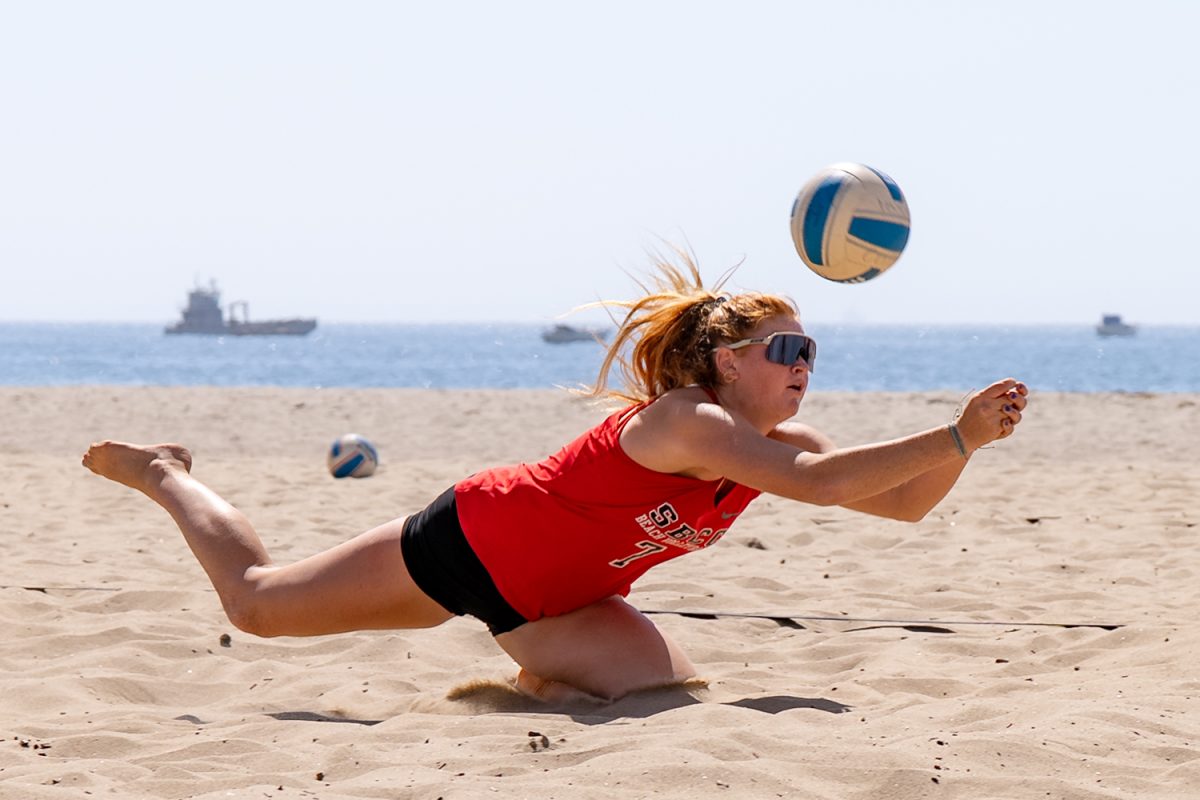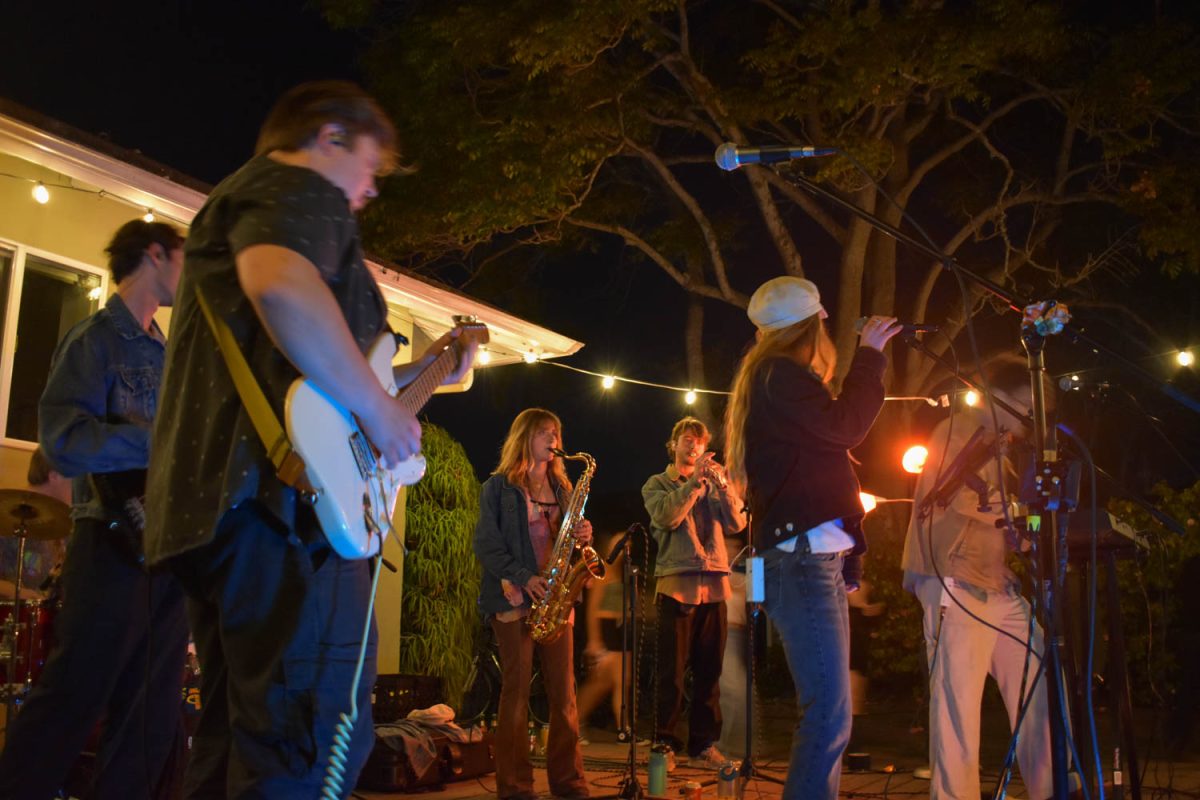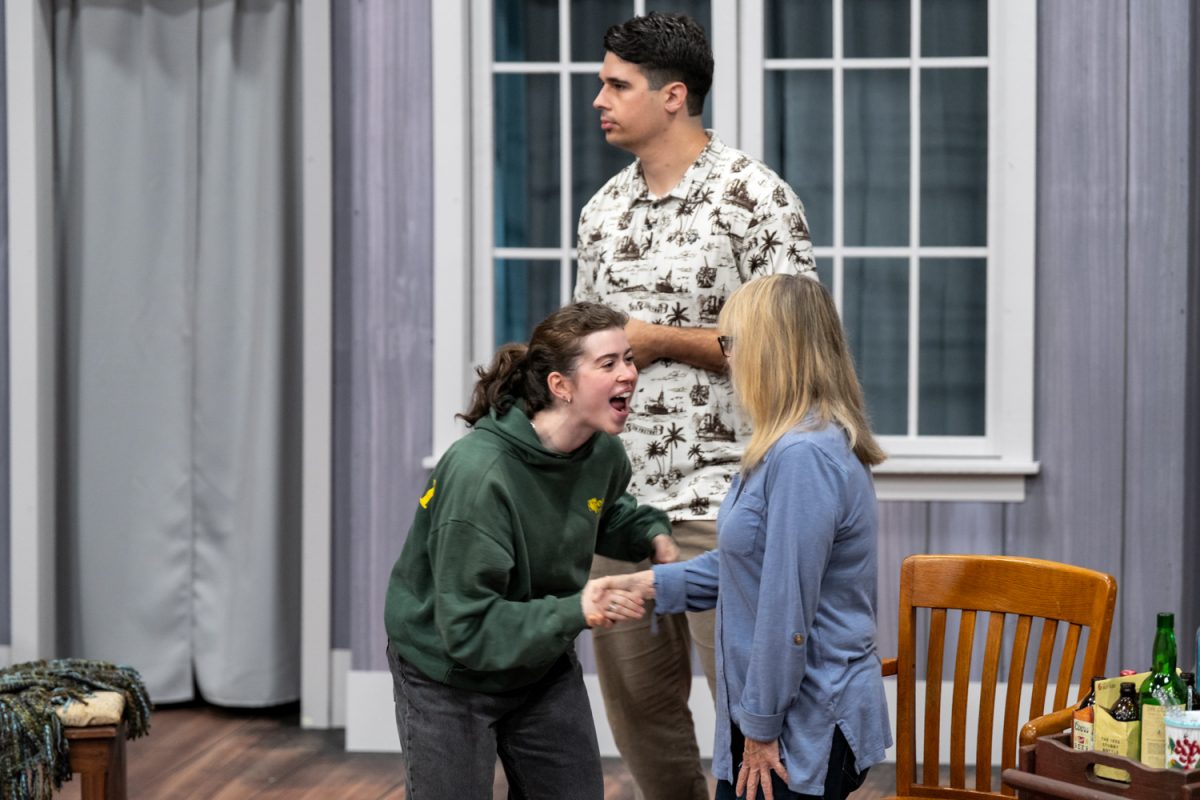The usual chattering that occurs in a room packed full of people was replaced by silence, broken up by occasional fits of laughter, at City College’s American Sign Language Club-sponsored student panel Friday.
The audience of nearly 100 conversed silently with each other via sign language as they waited for the “SBCC to CSUN and Beyond” panel to begin.
Led by three former City College students who transferred to California State University Northridge, the panel was meant to give current students who are interested in a career in ASL interpretation an opportunity to learn more about transferring into CSUN’s interpreting program.
“Be prepared for the intense level of work and be ready to be constantly practicing and developing your skills,” signed panelist Glory McGuigan, previous treasurer of City College’s ASL Club and current President of CSUN’s Deaf Studies Association. “… You will be able to sleep though and it won’t kill you,” she said with a chuckle.
The entire event was delivered through sign language and was translated into English by interpreters Margaret Cobb and Michelle Walsh. The three panelists were asked questions by current City College ASL Club President Liam Cetti.
Audience members were able to text their questions to a phone number and a moderator would then sign the question in front of the audience.
Cetti would then sign the question to the panelists, who would sign their answers to the audience. Cobb spoke into a microphone and translated the sign language into English throughout the discussion.
“Although my heart was with working with kids, I felt that tug towards interpreting,” signed panelist Allie Scudelarl, a senior in CSUN’s interpretation program and the former secretary and vice president of the City College ASL Club.
McGuigan, Scudelarl and the third panelist, Rossio Zavala Perez, all agreed that the CSUN program was incredibly challenging but well worth it. When asked their opinions on double-majoring deaf studies with medicine, the panelists all warned that it might be too much.
“The interpreting program is a huge challenge, and I know very few who double-major,” McGuigan said. “It is much like an MA program. You might even have trouble if you have a full or part-time job.”
Scudelarl is a double-major herself but said she attributes much of her success to the fact she had already completed her pre-deaf education beforehand. Still, she said it is “very tough.”
After multiple mentions of the term “hearing privilege,” one audience member sent a text asking the panelists to elaborate on its meaning.
“Hearing privilege can be a sticky subject that not all hearing people want to recognize,” signed Perez, who holds a bachelor’s degree from CSUN in deaf studies and previously held the title of vice president of City College’s ASL Club and Oxnard College’s ASL Club. “People will say ‘I grew up poor, I don’t have that kind of privilege.’ But we all have various privileges we need to stay aware of.”
McGuigan said as a volunteer interpreter, she comes across many hearing people who don’t realize their own privilege.
“Oftentimes a hearing person will ask me ‘how do I sign this?’ when they should be asking the deaf person, not me,” she signed. “It’s easy to take power away from deaf people… I make sure I give the deaf person the opportunity to answer for themselves.”
The discussion ended with a student asking for tips to improve their ASL skills when they are struggling or feeling overwhelmed.
“Try to stick to children’s books,” Perez signed. “Practicing signing with those really helped me… also DPANTV. It’s an online sign-language channel that interprets the news. They interpreted the entire 2016 elections and I learned new vocabulary from that.”
Above all else, though, the panelists said those who transfer into the interpretation program need to take care of themselves to be successful.
“It’s important to have a life,” Perez signed. “You still need to provide time for yourself to chill and relax or you’ll burn out.”










![Milton Alejandro Lopez Plascencia holds a flag showcasing the United States and Mexico on Feb. 7 in Santa Barbara, Calif. “It’s heartbreaking to see what is happening all across the country,” Lopez Plascencia said. “I [want] my voice to be heard by the community.”](https://www.thechannels.org/wp-content/uploads/2025/05/MGSImmigration-1-1200x800.jpg)




